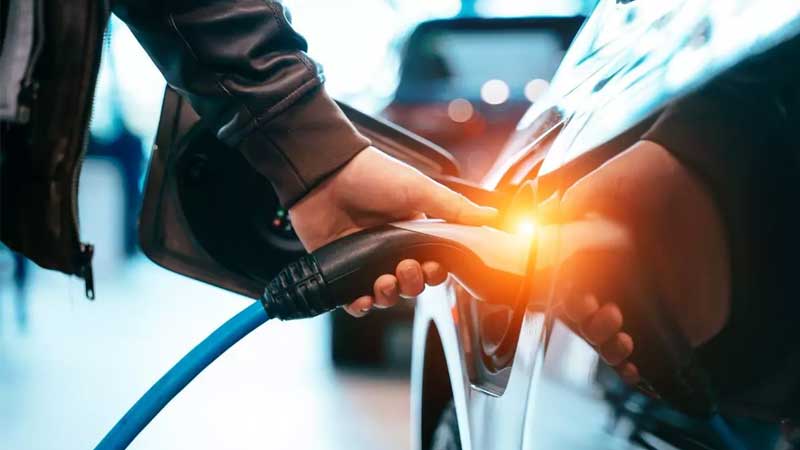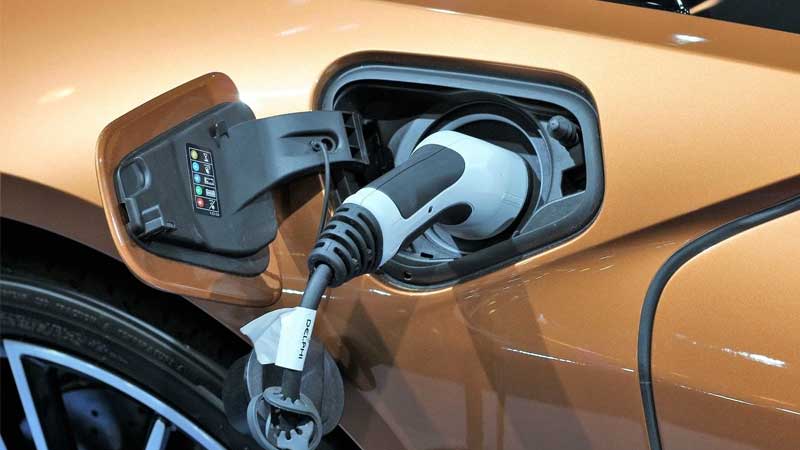The automotive world is undergoing a transformative shift, and one of the most significant changes in recent years is the rise of hybrid cars. As we look toward 2025, the advantages of hybrid cars are becoming clearer than ever before. With global concerns about climate change, rising fuel prices, and the rapid development of technology, hybrid cars have emerged as a practical and sustainable alternative to traditional gas-powered vehicles. But why exactly should you choose a hybrid car over a conventional gas car in 2025? This article will explore the key reasons, from environmental benefits to financial savings, and everything in between.

What Are Hybrid Cars?
Before diving into the reasons why hybrid cars are a better choice, it’s essential to understand what they are. A hybrid car is a vehicle that uses more than one type of power source to propel the car forward. Typically, a hybrid car combines a gasoline engine with an electric motor. The electric motor can power the vehicle at low speeds, while the gasoline engine kicks in when more power is needed, such as during acceleration or high-speed driving. The synergy between these two power sources results in higher efficiency and lower emissions compared to traditional gas-powered cars.

In hybrid vehicles, the electric motor is typically powered by a battery that is charged through regenerative braking, which recaptures energy usually lost during braking. This means hybrid cars do not require external charging stations like fully electric cars, making them a convenient choice for many drivers.
Environmental Benefits: Reducing Carbon Emissions
One of the most compelling reasons to choose a hybrid car over a traditional gas car is the environmental impact. As concerns about climate change and air pollution intensify, reducing the carbon footprint of our daily activities has become more critical than ever.

Hybrid cars are significantly more fuel-efficient than their gas-only counterparts. With the ability to rely on an electric motor for low-speed driving and use the gasoline engine for higher speeds, hybrid vehicles can achieve better miles per gallon (MPG) ratings. This means they consume less fuel, which in turn leads to fewer greenhouse gas emissions. By using a combination of electric and gas power, hybrid cars can reduce the overall emissions that contribute to global warming and poor air quality.
In 2025, many regions worldwide are increasing regulations around carbon emissions, and hybrid cars are likely to become a more attractive option due to their ability to comply with these stricter standards. If you’re looking to make a meaningful difference in reducing your personal carbon footprint, hybrid cars present an eco-friendly solution.
Cost Savings: Lower Fuel Consumption
One of the most significant benefits of hybrid cars is the amount of money you can save on fuel. Gas prices have been volatile over the years, and they are expected to remain unpredictable in 2025. Traditional gas-powered vehicles tend to consume large amounts of fuel, especially during city driving, where the engine is constantly accelerating and decelerating. In contrast, hybrid cars excel in city driving, as the electric motor takes over during low-speed driving, helping to conserve fuel.

Hybrid cars typically offer impressive MPG ratings, with some models achieving over 50 MPG in the city. This efficiency translates into fewer trips to the gas station and a noticeable reduction in your annual fuel expenses. As fuel prices continue to rise, making the switch to a hybrid car can be a smart financial decision, helping you avoid the financial strain that comes with rising gas prices.
Lower Maintenance Costs: Fewer Engine Strain
Another advantage of hybrid cars over gas cars is their lower maintenance costs. The engine in a hybrid vehicle undergoes less strain compared to a traditional gas-powered engine. Since the electric motor takes over for low-speed driving and assists during acceleration, the gasoline engine is not constantly in use. This reduces wear and tear on engine components, resulting in fewer breakdowns and less frequent visits to the mechanic.
Moreover, hybrid cars tend to have regenerative braking systems, which reduce the need for traditional brake pads. Since the braking force is partially provided by the electric motor, the brake pads last longer, further reducing maintenance costs. In 2025, as more automakers push for longer-lasting and more durable hybrid technologies, maintenance costs will continue to decrease.
Incentives and Tax Benefits
Governments around the world are increasingly offering incentives and tax benefits to encourage consumers to make the switch to hybrid cars. These benefits include tax rebates, subsidies, and incentives for buying eco-friendly vehicles. In some countries, buyers of hybrid vehicles may qualify for federal or state tax credits, which can help offset the initial purchase price of the car.
In addition to tax benefits, some regions offer incentives like access to carpool lanes, reduced registration fees, and exemptions from certain tolls. These perks make hybrid cars not only more affordable but also more convenient for daily use.
As we move into 2025, these incentives are likely to become more prevalent, with governments continuing to encourage eco-friendly transportation solutions to meet carbon reduction goals. By choosing a hybrid car, you can take advantage of these financial incentives and enjoy additional savings on your vehicle purchase and ownership.
Improved Technology: The Future of Hybrid Cars
One of the most exciting aspects of hybrid cars is the rapid technological advancements being made in the industry. As automakers continue to innovate and improve hybrid technology, we can expect even better performance, efficiency, and convenience in the coming years.
By 2025, hybrid cars will likely offer more powerful and efficient electric motors, allowing for longer electric-only driving ranges. This means hybrid vehicles could be driven in fully electric mode for longer distances, further reducing fuel consumption and emissions. Additionally, the batteries used in hybrid cars will continue to improve, becoming lighter, more affordable, and longer-lasting.
With the rise of autonomous driving technologies, many hybrid cars in 2025 may come equipped with advanced driver-assistance systems (ADAS) that can enhance safety and convenience. These features, such as adaptive cruise control, lane-keeping assist, and automatic emergency braking, will make hybrid cars safer and more enjoyable to drive.
Furthermore, the integration of smart technologies, such as advanced infotainment systems and connectivity features, will make hybrid cars more user-friendly and appealing to tech-savvy drivers. As the hybrid car market continues to evolve, consumers can look forward to a more refined driving experience.
Energy Independence: Reducing Dependence on Fossil Fuels
Choosing a hybrid car can also help reduce our dependence on fossil fuels, a key driver behind geopolitical tensions and environmental concerns. While hybrid cars still use gasoline, they rely less on it than traditional gas cars, which means they contribute to less demand for oil. In a world where oil prices are volatile, hybrid cars offer a more sustainable transportation solution.
In addition, the increasing use of renewable energy sources to power the electric motor in hybrid vehicles could further reduce reliance on fossil fuels. As the energy grid becomes greener and more sustainable, the overall environmental impact of hybrid cars will continue to decrease.
Performance Benefits: Quiet, Smooth Ride
Hybrid cars offer a smoother and quieter ride compared to traditional gas-powered vehicles. Because the electric motor operates quietly and efficiently, hybrid cars tend to produce less engine noise, especially when driving at lower speeds or in electric mode. This leads to a more comfortable and enjoyable driving experience.
Hybrid cars also provide instant torque from the electric motor, which can result in quicker acceleration and a more responsive driving feel. With the combination of electric and gasoline power, hybrid vehicles strike a balance between performance and efficiency, offering drivers the best of both worlds.
Resale Value: Increasing Demand for Eco-Friendly Vehicles
As the demand for eco-friendly vehicles continues to rise, hybrid cars are becoming more desirable on the used car market. In 2025, hybrid vehicles will likely have strong resale value, as more consumers seek sustainable alternatives to traditional gas-powered cars. With advancements in hybrid technology and increasing consumer awareness of environmental issues, owning a hybrid car could prove to be a sound investment.
Conclusion
In 2025, hybrid cars offer a compelling alternative to traditional gas-powered vehicles. With numerous benefits, from reduced environmental impact to lower operating costs, improved technology, and increased government incentives, choosing a hybrid car is a wise decision for drivers who want to save money, reduce their carbon footprint, and embrace the future of transportation. As the automotive industry continues to evolve, hybrid cars will undoubtedly play a pivotal role in shaping the future of driving. So, if you’re considering a new car in 2025, a hybrid vehicle should be at the top of your list.

